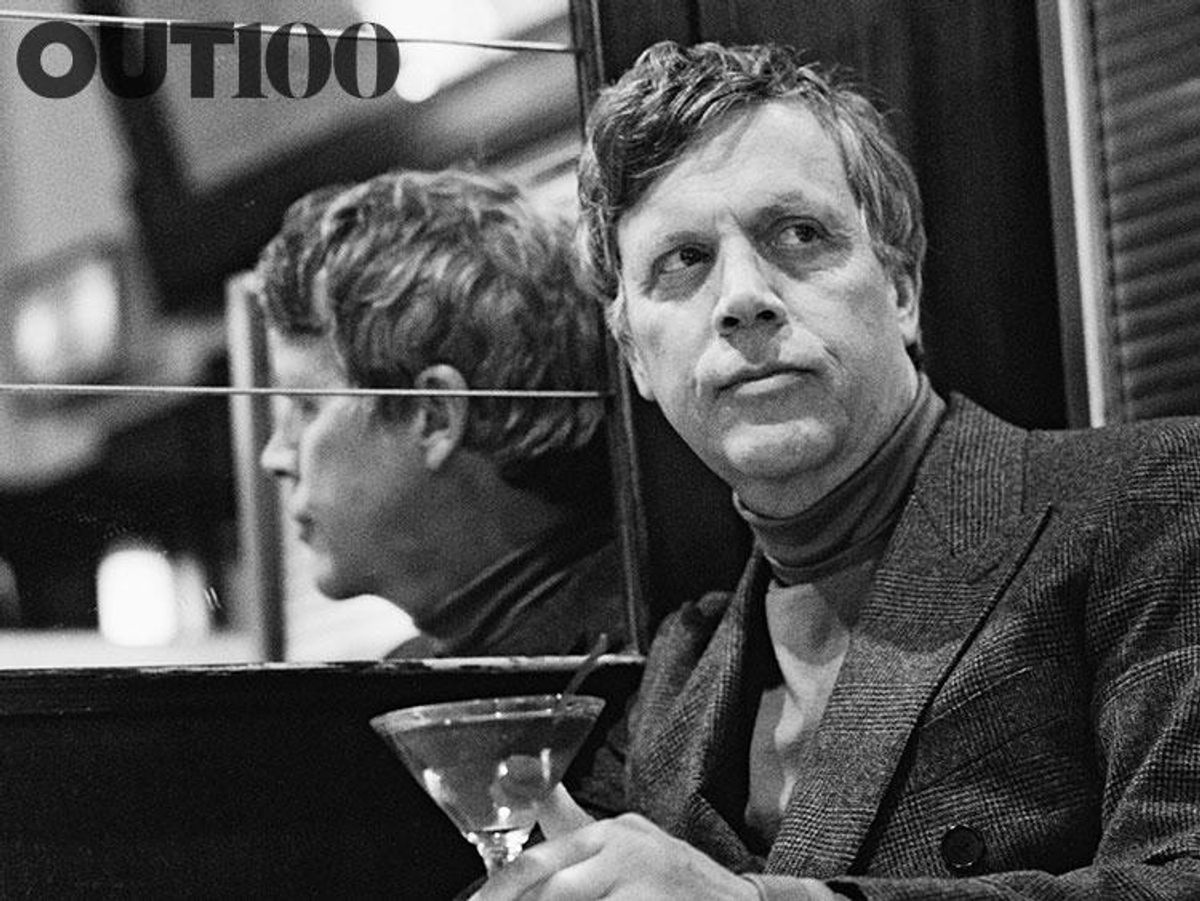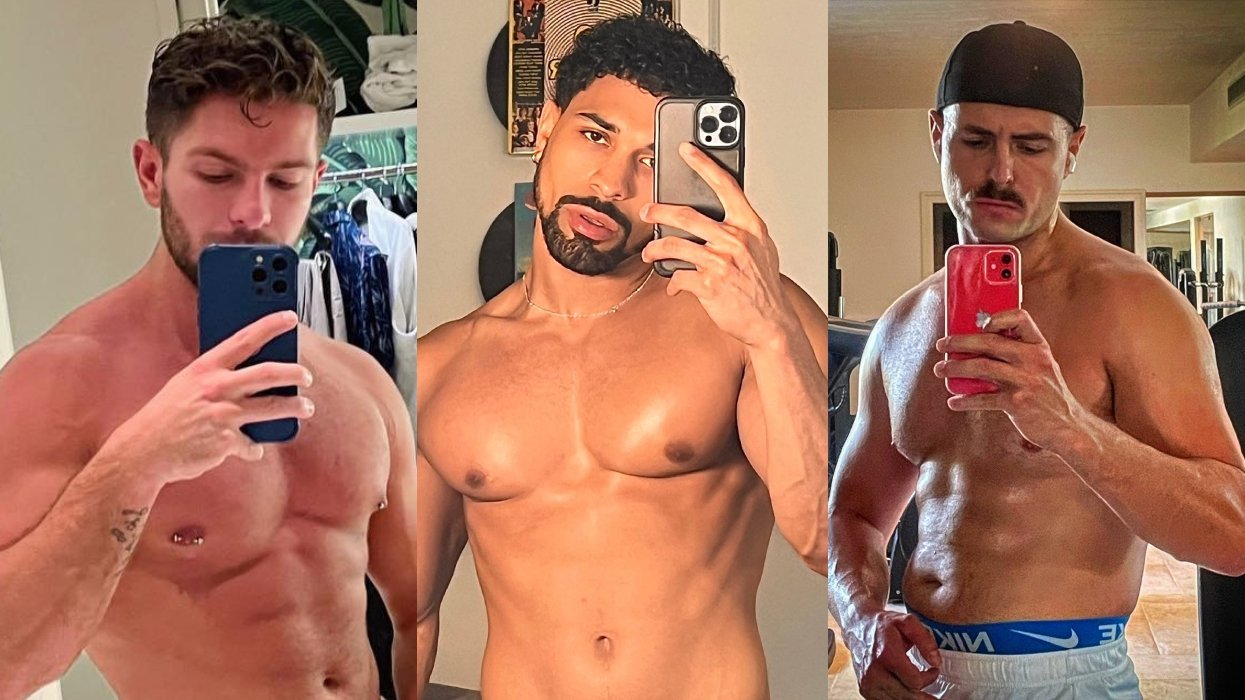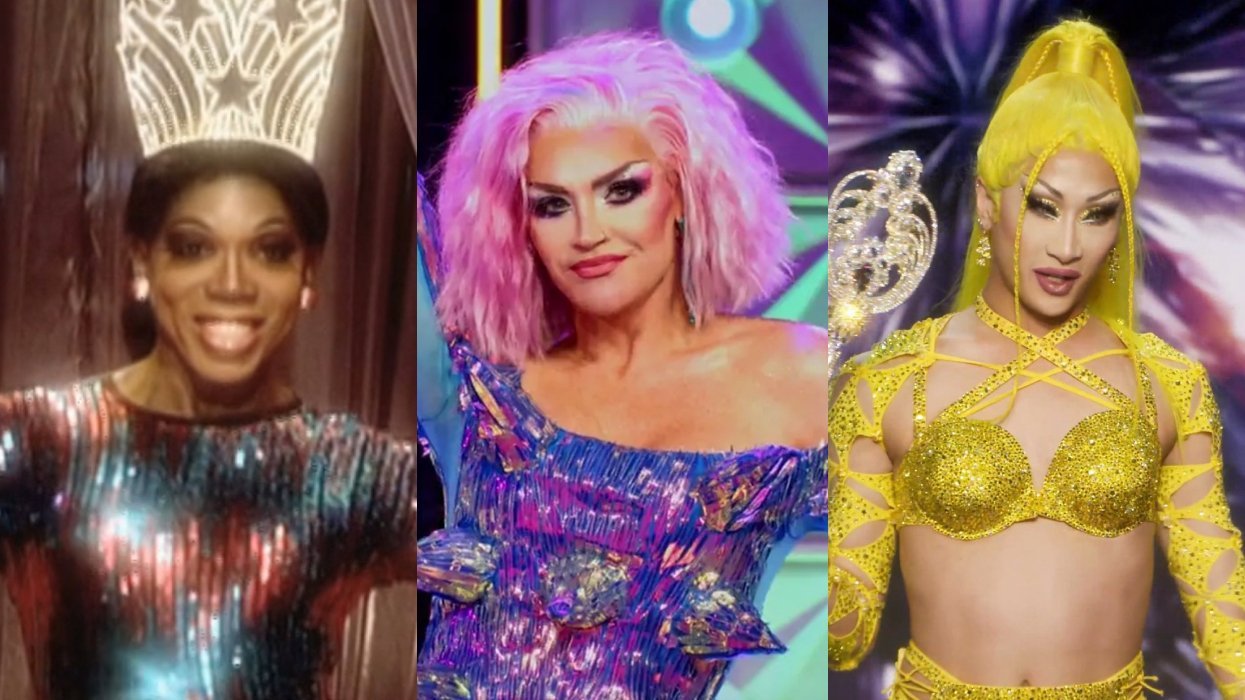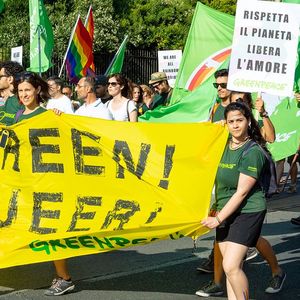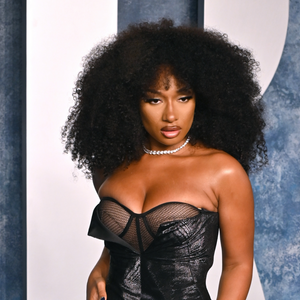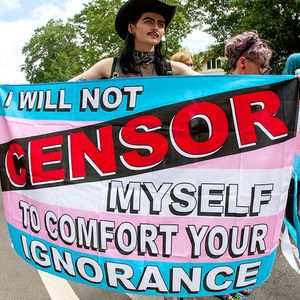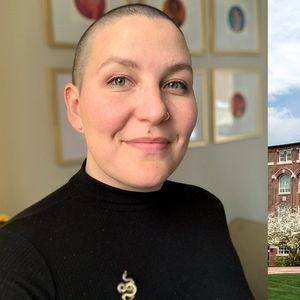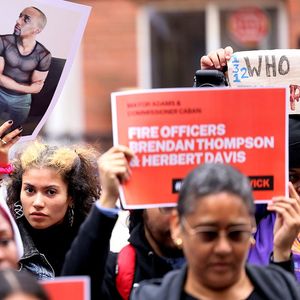With his debut 1991 feature film Poison, Haynes took an old French novel and adapted it to film to show the complexity and fluidity of queer sexuality. Since the early 1990s, Haynes has helped set off a cinematic trajectory of filmmaking that shows the power, uniqueness, and importance of LGBT identity. His films have continued to offer audiences an alternative to the long and hostile history of representing on screen homosexuality as sinful and diseased.
RELATED | Out100: Todd Haynes
Haynes is back this month with his latest offering,Carol, starring Cate Blanchett and Rooney Mara, about a relationship between a young ambitious photographer (Mara) and her emotional and sexual relationship to a married woman (Blanchett). In honor of the upcoming release, we have compiled a list of Haynes's greatest queer moments ahead of the release of Carol.
Julianne Moore "Safe" in a Satin Robe
Todd helped make Moore a star (and a gay icon) thanks to her performance in this film. In Safe (1995), Moore plays a housewife who develops an intense chemical sensitivity and joins a New Age retreat in the desert to cure her of her ailment. The film allegorizes narratives about HIV/AIDS but locates these on white heterosexual housewife. Haynes attempted to challenge the pervading assumptions about gay men and AIDS, offering a provoking paradigm shift by showing a white straight mother as the bearer of an "incurable" and "contagious" illness.
Karen Carpenter as Barbie
Haynes's college short Superstar: The Karen Carpenter Story (1987) has long been out of circulation because of the copyright infringements Haynes made by using music by The Carpenters. However, the film has re-surfaced on YouTube and really shows - through a Barbie doll no less - the tragic life story of Karen Carpenter. As songs are superimposed over the blurry images in the short, we see the lithe plastic "Karen" figurine swirl clumsily around as she "sings" the words from the band's iconic but achingly mournful song "Yesterday Once More." Carpenter - who suffered from bulimia and died young aged 32 - is morphed here into a plastic, sickly girl's toy in an effort to demonstrate the unrealistic body standards that are placed on women. In many ways, the short also helps explain Karen Carpenter's appeal to gay fans - a misunderstood life gone too soon.
Sucking/Puffing Away in Poison
Poison was Haynes first feature film. Fresh out of his Masters program, he was eager to accentuate phallic metaphor and symbolism on screening. There's an alluring scene where one of the main character obsessively puffs away on a cigarette, amidst the haze of heavy homoerotic touching and tension that punctuates one vignette after another about prison life. Haynes really makes us feel as though the character is sucking off one of these prisoners instead of puffing away on his dirty stale cigarette. The film uses the stories of French gay writer Jean Genet as the basis for a triptych of queer revisions of 1960s sci-fi horror films, tabloid newsreels, and French writing for its narrative. Many have since cited Poison as one of the early examples of "New Queer Cinema."
A Young Boy Talks Wigs in Dottie Gets Spanked
How many of us didn't try and socialize with the other young girls in the school playground, talking about movie stars and female singers? Just me? Well in Haynes' 1993 short Dottie Gets Spank Haynes tells the brief story of a shy and sensitive six-year-old boy. In the scene below, we see the boy talk to a couple of catty girls in the school-ground about a certain idolized movie star wearing wigs. The scene shows the early innocence and sweetness of the effeminate boy whose identification with the TV sitcom star is mocked by these girls. The film is a slightly camp feat for Haynes, as he shows us how so many young queer boys gravitate to their diva and star icons.
Cate Blanchett as Bob Dylan in I'm Not There
I'm Not There is the most recent feature film Haynes has done, revising the history of legendary singer-songwriter Bob Dylan - through an intersectional, multi-racial approach. We have the likes of Cate Blanchett and Marcus Carl Franklin portraying the iconic singer of "Like A Rolling Store," as these actors offer their own take on the iconic figure who was a mouthpiece for the changing political and social landscape of America during the 1960s. What the various performances (of a straight white male) offer are a powerful and complex de-construction of Dylan through cinematic collage. Haynes attempts to show Dylan's more vulnerable, sensitive side as well as underscores Bob Dylan's enduring influence to diverse groups in American society.
Autumn Leaves in Far From Heaven
Far From Heaven's beautiful, fragile autumnal leaves suggest the precariousness of our connection to the larger community - so often breaking away and then "dying" under the pressure. They also imply cyclical changes in our larger social sphere, and so Haynes' magnificent film. Julianne Moore stars as a housewife caught between her husband's newfound sexual discoveries and her own attraction to a local African American man in an era that stigmatised and shamed both interracial relationships and homosexuality. The film is a bittersweet experience as well as realize that the tides of social and political change are ahead but know that so many were forced to abandon their desires and dreams for the sake of the oppressive status quo.
Remaking Mildred Pierce - The "Greatest" Gay Movie Ever
Gay scholar David M. Halperin wrote multiple chapters on the 1945 film Mildred Pierce for his manifesto on gay culture How to be Gay. Halperin argued the film deserved its sacred place in gay culture and poured over Crawford's memorable Oscar-winning performance (including those infamous slaps). Haynes - no doubt realising the film's historical and cultural appeal to gay audiences - remade it for television with Kate Winslet in the eponymous role. Mildred Pierce is a classic work of classic Hollywood cinema that has queer value thanks to Mildred's unwavering commitment to her children, her reborn and self-made identity (after her divorce), and her resurrection from the ashes after murder and bad motherhood. Given Crawford's longstanding status as a "bitch," bad mother (remember Mommie Dearest?), and gay icon, remaking Mildred Pierce was a smart move to help introduce the legendary story to a new generation of audiences.
Jonathan Rhys Meyers Kissing Ewan McGregor
Once more, homoerotic tension features prominently in another Haynes films - this time in Velvet Goldmine (1998). The film explores the British glam rock movement of the 1970s and 1980s, where the likes of David Bowie and Iggy Pop sang about space and sex, wore make-up and high-heels, and slept with both men and women - separately and at the same time. The blurring between what was masculine and feminine, straight and gay, male and female are wonderfully captured in Haynes' film, which tells its vignettes through a non-linear, disrupted narrative. In one particularly sensual scene, we see Jonathan Rhys Meyers kiss Ewan McGregor--one can just imagine the likes of Iggy Pop and Lou Reed doing the same.
Rumored Peggy Lee Biopic
This is not exactly a Todd Haynes "moment"--yet. Rumor has it that Haynes is set to make a Peggy Lee biopic after the publicity and release of Carol wraps up. Lee, the sixties seductress with her smoky voice and hit song "Fever," performed on stage for decades and was performing into her 60s. We can only hope that Haynes turns up the camp value of Lee, plugs in a star with transformative potential (Streep, Moore, Blanchett), and has many 60s tunes serenading us throughout with a vintage filter. Here's a clip of Peggy from the 1980s.
Carol
And now, Carol, a lush adaptation of Patricia Highsmith's 1952 novel The Price of Salt, it's a movie that merges the filmmaker's mastery of period detail with timeless queer themes. It will be released in select U.S. cinemas November 20. Watch the trailer below:
